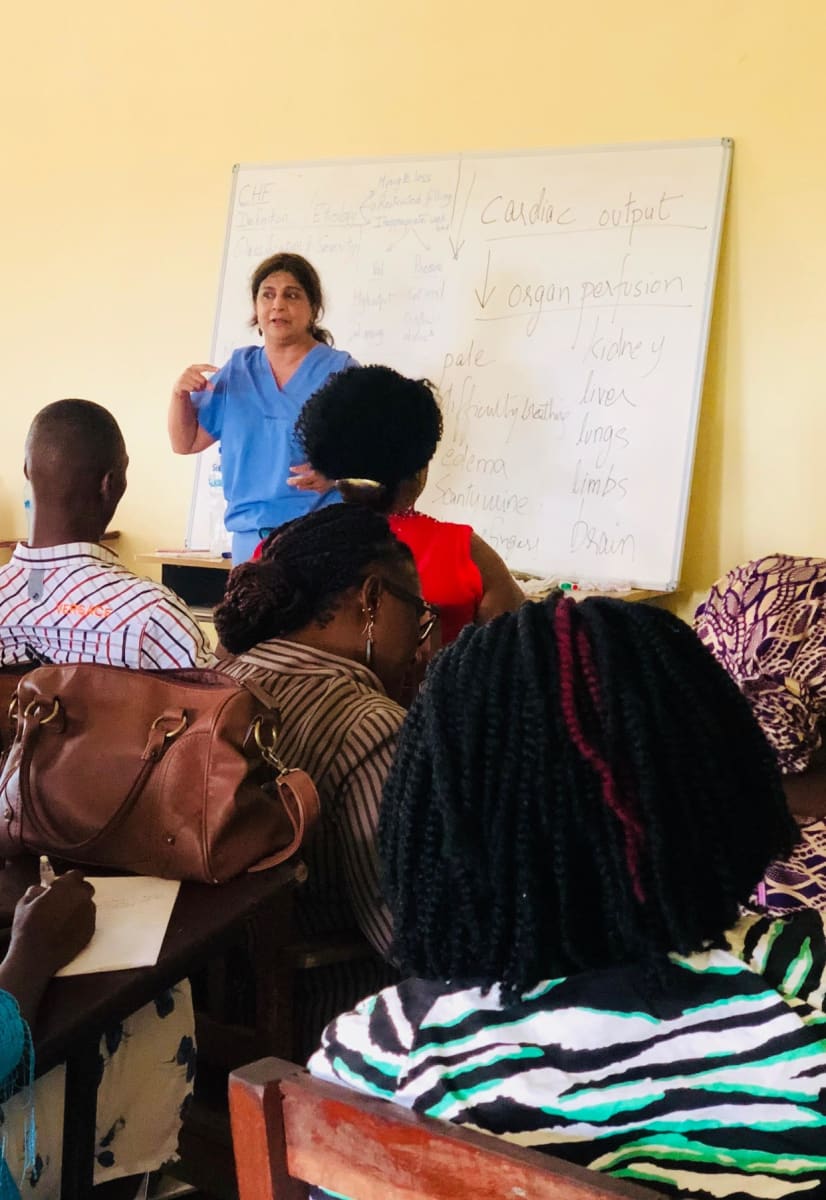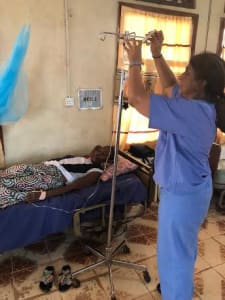The West African country of Sierra Leone, with a population of 7.7 million, has been left as one of the poorest and most underserved countries in the world after the civil war 1991-2002 and the 2014 Ebola outbreak. Currently more than 60% of Sierra Leoneans live below the poverty line and are not able to access basic human needs including medical care.
In early November, MedGlobal is deploying a Mission to Bo, Sierre Leone. MedGlobal is partnering with the District Medical Officer of Bo by sending 13-14 Physicians to provide care to the people of this region and training to the local Bo Medical Practitioneers. I will be one of the Physicians in this group
The local population of Bo, Sierra Leone is who will benefit from the project. The population has been deeply affected after the Civil war (1991 - 2002) and the 2014 Ebola outbreak and more than 60% live below the poverty line.
These people have limited other opportunities for health care. People will benefit from having both preventive as well as urgent care.
We also hope to educate the local practitioneers and set a precedent for quality healthcare throughout the region.
The preventive and acute care for these patients offers them access to healthcare that would otherwise likely be unattainable.
Our goal is to provide continued yearly visits and longitudinal care
In addition to the outreach clinics, we also hope to do some data collection and data analysis and we hope that the information collected through this process will guide future public health initiatives and training for hospital staff.
.
I also hope to return and share my experience with the house staff and faculty at my hospital and hope to inspire several more physicians to volunteer for such missions.






ANTHONY BOURDAIN said
“Travel changes you. As you move through this life and this world you change things slightly, you leave marks behind, however small.”
Through this medical mission, we provided medical care in a country where most people have almost no access to healthcare and the hospitals and medical professionals have very scant resources.
We operated medical clinics, diagnosed several acute illnesses (infectious and chronic) and provided treatment for a variety of conditions.
Our surgeons performed surgeries that were not only lifesaving, but also to alleviate chronic pain, disfigurement and discomfort. We donated medications and other medical supplies (glucometers, nebulizers, pulse oximeters)
And we provided teaching and hands-on training to the community healthcare workers, doctors, nurses, midwives and allied health personnel. We provided class-room teaching on a variety of basic topics such as sepsis, liver cirrhosis, asthma management, congestive heart failure, acute kidney disease, hypertension, diabetes management, neonatal care, palliative options for end of life management. The community health workers, nurses and physicians-in-training whom we taught were extremely enthusiastic, and, like sponges lapped up all that we had to offer.
In addition, during our mission to Sierra Leone, we incorporated a 4 day course for essential skills in critical care. We trained more than 80 doctors and nurses, some of them will become instructors and teach the course to others.
By providing continuing medical education to the healthcare providers and teaching doctors new skills, we hope we left our mark behind, however small.